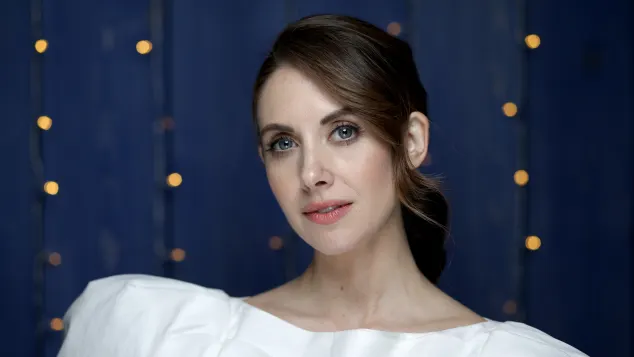Alison Brie is getting real about mental health
Alison Brie is opening up and getting candid for her cover issue of Women's Health magazine, and talks about her battles with depression and body dysmorphia.
Although she has overcome the worst of it, the Community star is admitting she still struggles with it.
“Oh definitely. Still do! I go back to red carpet photos where I thought I looked so horrible, and there are some where I now think, God, I looked beautiful," she says.
RELATED: THESE CELEBRITIES OVERCAME THEIR EATING DISORDERS
"And I’ll remember: An hour before that I was in tears; I thought I was so disgusting. I think it’s something I’ll probably be working through my whole life. And depression, too,” she admits.
Brie credits her strength training she did for the Netflix original GLOW, in helping her overcome her dysmorphia, but also credits her mental health as a hereditary issue.
She went on to disclose that her maternal grandmother suffered mental health problems her whole life, battling depression, schizophrenia, causing spouts of homelessness.
DON'T MISS: SPICEGIRLS' MEL C OPENS UP ABOUT HER DEPRESSION
“The rest of my family then dealt with the trickle-down effects of trauma. And that meant depression more than anything,” she said.
Brie does say that her depression comes "out of nowhere" and can "blindside" her when it happens.
“When I’ve been in a really serious depression, I’ll drag myself to a yoga class – even if I don’t want to be around people – tears streaming down my face,” the star shares.
RELATED: LADY GAGA'S MOTHER OPENS UP ABOUT HELPING HER DAUGHTER THROUGH DEPRESSION
“But, get in class, get out of your head, get blood flowing. It ends up helping eventually,” she continued.
Brie does share that her marriage to Dave Franco has helped her overcome some of her darkest days saying, "I’m so lucky I’m married to a really wonderful, open person. We have great lines of communication and I can talk often about my feelings."
She continued, “It’s been funny talking to him about it. He said, ‘Before I knew you, I’m not sure I believed body dysmorphia was a real thing.’ It’s so interesting to me what you see – and what I’m seeing when I’m looking at you – and the frank discussions we have about it.’”
The full interview can be found in April's issue of Women's Health.







